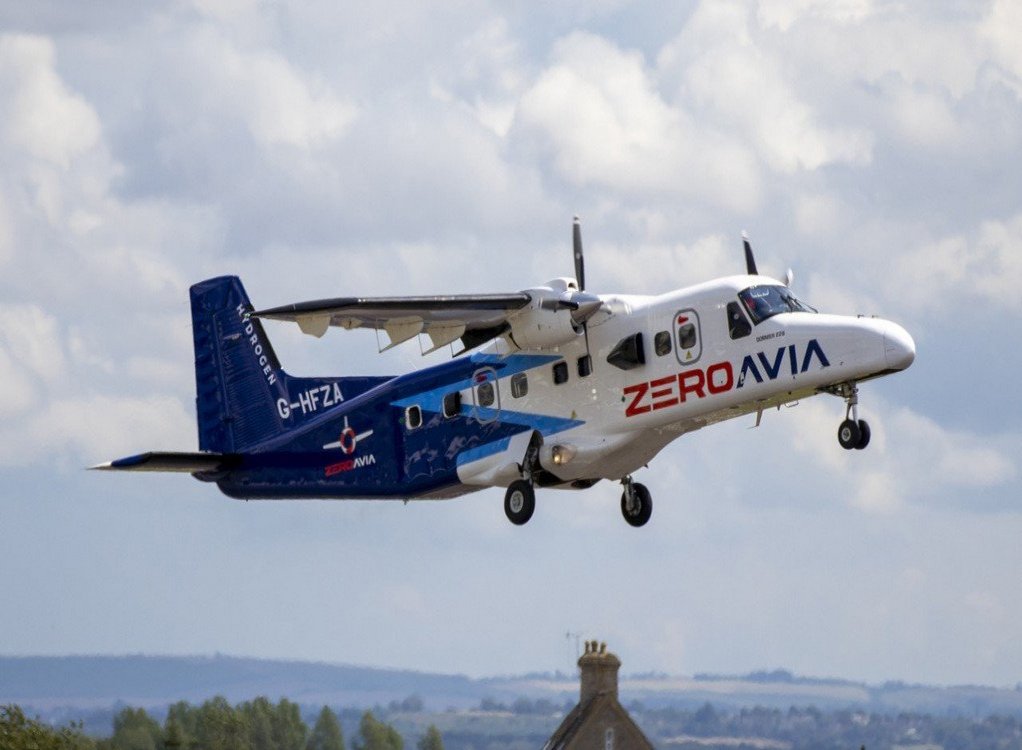ZeroAvia and Verne announced that they have signed an MOU to jointly evaluate the opportunities for using cryo-compressed hydrogen (CcH2) on-board aircraft and for conducting CcH2 refuelling from gaseous hydrogen (GH2) and liquid hydrogen (LH2) sources.
ZeroAvia is a leader in zero-emission aviation, focused on developing hydrogen-electric engines for all types of aircraft as the most environmentally and economically-friendly solution for the industry’s growing climate change impact. Aviation accounts for ten percent of all U.S. transportation greenhouse gas (GHG) emissions and three percent of total U.S. GHG emissions, according to the Environmental Protection Agency.
Verne is a hydrogen storage and refuelling technology startup focused on solutions using cryo-compressed hydrogen for heavy-duty transportation. Cryo-compressed hydrogen stores gaseous hydrogen at cold temperatures, increasing the energy density of the fuel, which could enable a longer range compared to GH2 powered aircraft.
According to analysis by Verne, cryo-compressed hydrogen can achieve 40 percent greater usable hydrogen density than liquid hydrogen and 200 percent greater usable hydrogen density than 350 bar gaseous hydrogen. Additionally, the application of cryo-compressed hydrogen promises to significantly reduce the cost of densification and refuelling time, increase dormancy time relative to LH2 systems, and potentially eliminate venting for pressure management.
ZeroAvia and Verne will assess the potential benefits of scaling CcH2 storage and refuelling infrastructure at airports across the world, as hydrogen-electric propulsion scales to support larger and larger aircraft. The two companies will also work together to develop a model for initial airport locations in California.
Verne has developed large hydrogen storage systems exhibiting 4 MWh of storage. Recently, Verne and Lawrence Livermore National Laboratory announced the demonstration of Verne’s 1 MWh CcH2 storage prototype. Verne has received federal grants for the development of its technology, including from ARPA-E. Verne is backed by Amazon’s Climate Pledge Fund, Caterpillar Venture Capital, Collaborative Fund, and other leading investors. As well as rapid work to develop its propulsion technology, ZeroAvia has been active in demonstrating hydrogen airport infrastructure.
ZeroAvia is already flight testing a prototype of its ZA600 hydrogen-electric engine aboard a Dornier 228 aircraft at its UK base, and is working to retrofit a prototype of its ZA2000 to a 76 seat Dash 8 400 in the U.S. Hydrogen-electric engines use hydrogen in fuel cells to generate electricity, which is then used to power electric motors to turn the aircraft’s propellers. The only emission is water.
Tags: Aircraft, Airports, Hydrogen, Verne, ZeroAvia



Recent Posts
TSUNEISHI Launches World’s First Methanol Dual-Fuel KAMSARMAX Bulk Carrier in the Philippines
Grimaldi Group Launches Ammonia-Ready Car Carrier Grande Shanghai in China
Incat Tasmania to Build Two Battery-Electric Ferries for Denmark’s Molslinjen
YamnaCo Signs MoU with Andhra Pradesh to Develop Large-Scale Green Hydrogen and Ammonia Project
WNTI and NEMO Sign MoU to Advance Nuclear-Powered Shipping and Mobile Nuclear Energy Solutions
TotalEnergies and CMA CGM Form Joint Venture for LNG Bunkering Operations in Rotterdam
Keel laid for Bibby Marine’s first zero-emission eCSOV
New Report Highlights Potential of Voluntary Insetting to Support Maritime Decarbonisation, Calls for Robust Safeguards